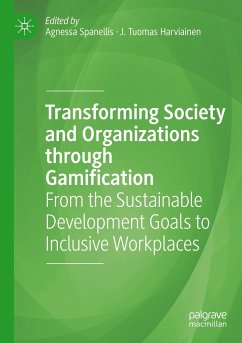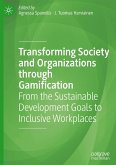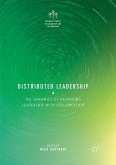Gamification is the application of game-design elements and game principles to non-game contexts, and has been used to solve problems by applying characteristics of games. Though it has principally been applied in the areas of business and education, this book seeks to expand focus beyond this, looking at how gamification can be used for social change, the development of organizations and the implementation of the UN Sustainable Development goals.
Including contributors from across the glove, it draws on a rich array of case studies, from inclusivity in the workplace to ecosystems in the Amazon. A timely contribution to an exciting, growing field, this book engages with the theoretical framework and lays out the foundations for a rigorous theory-based stream of research. It will be valuable reading to scholars and practitioners interested in social change, sustainability, gamification and organizational studies.
Agnessa Spanellis (PhD, MEng) is an Assistant Professor at Heriot-Watt University, Scotland and a member of the Research Centre for Logistics and Sustainability at Edinburgh Business School, leading research on gamification for sustainable development and exploring how gamification can improve social and environmental sustainability, especially in more deprived and impoverished communities in low-income counties.
J. Tuomas Harviainen (PhD, MBA) works as Associate Professor of information Practices at Tampere University, Finland. Harviainen's work ranges from information sharing in creative organizations to games and gamification. He firmly believes that good research can also be a form of societal activism.
Including contributors from across the glove, it draws on a rich array of case studies, from inclusivity in the workplace to ecosystems in the Amazon. A timely contribution to an exciting, growing field, this book engages with the theoretical framework and lays out the foundations for a rigorous theory-based stream of research. It will be valuable reading to scholars and practitioners interested in social change, sustainability, gamification and organizational studies.
Agnessa Spanellis (PhD, MEng) is an Assistant Professor at Heriot-Watt University, Scotland and a member of the Research Centre for Logistics and Sustainability at Edinburgh Business School, leading research on gamification for sustainable development and exploring how gamification can improve social and environmental sustainability, especially in more deprived and impoverished communities in low-income counties.
J. Tuomas Harviainen (PhD, MBA) works as Associate Professor of information Practices at Tampere University, Finland. Harviainen's work ranges from information sharing in creative organizations to games and gamification. He firmly believes that good research can also be a form of societal activism.








